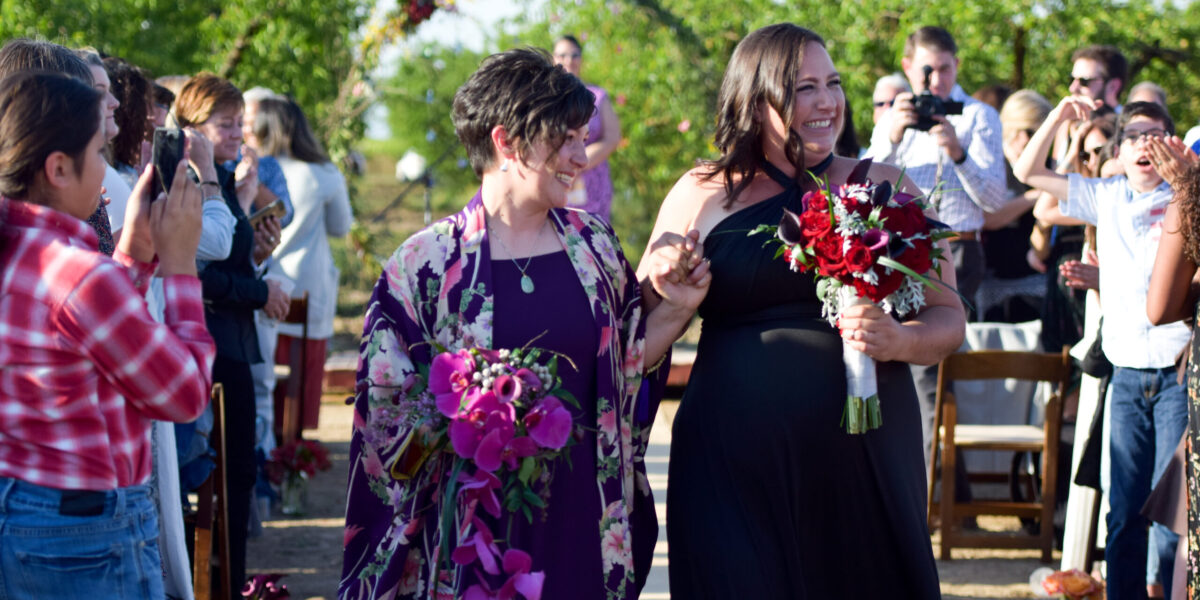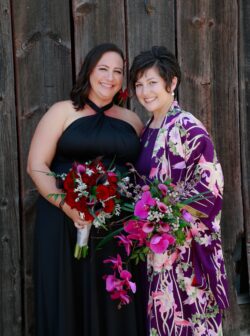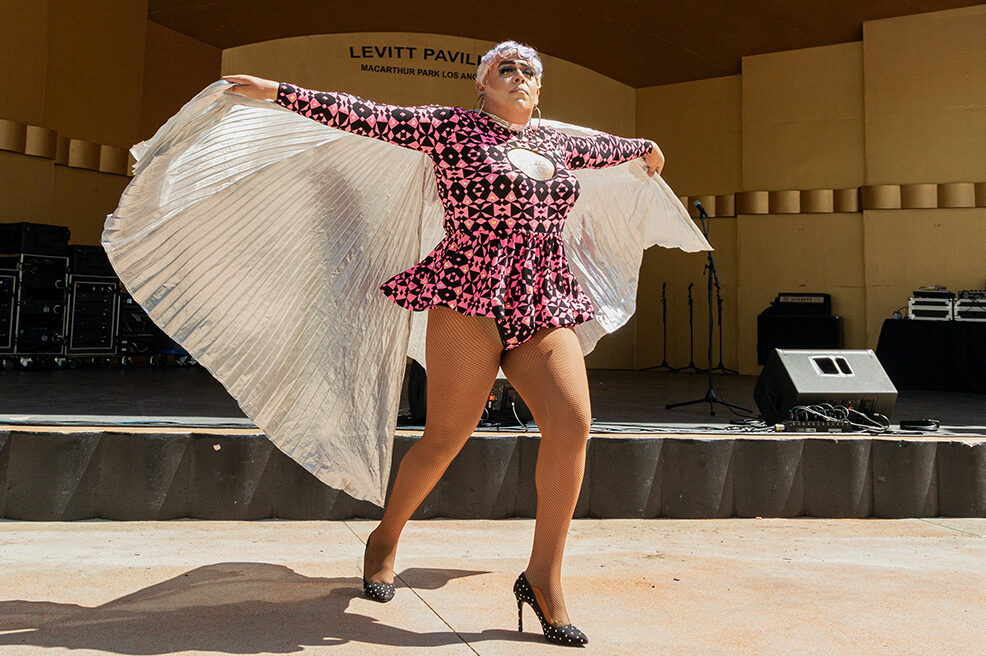
Not only was that moment powerful because of the beauty of our wedding, the presence of our family and community, the ceremonial rituals of the day, and the special heirloom kimono I got to wear, but it was also powerful because at one point in my life, that moment felt impossible. But that day in 2019, none of the ancestral and cultural story of my family was incongruous with who I was and whom I was marrying. My wife and I are queer: two womyn in love and proud, living out our radical joy.
Unfortunately, moments of bliss like this are a temporary dream state we must work to maintain and create. As queer people who practice, lead, and give life to cultural practices like traditional arts, our lives are always saddled with additional labor and loss. All too often, this radical joy emerges from the darkness of profound grief – from knowing this world was not created for us, that our survival is defiance.
When I think of the term traditional arts, I think of home. I think of the cultural and creative practices that call us home. We bring home with us in our creative lives, we forge new ideas of home in strange lands, we honor the dead and carry wisdom, cultural values, and ways of being to the next generation through traditional arts.
But home, and consequently the ‘tradition’ of folk arts, can be a particularly fraught place for queer folx. Just two weeks before our wedding, our only neighbor came over in her car. Living in rural Fresno County, neighbors are particularly important. This neighbor is literally the only house whose lights we can see at night. When my grandparents lived in the house for decades before my wife and I, our neighbors had always been kind and caring. But something was different. My neighbor drove over that day instead of walking—she had never done that before.
She informed me that she would not be attending our wedding. I can’t quite remember exactly what excuse she gave, something about her relationship with God and how she just couldn’t celebrate our marriage. It only took me a few seconds of shock before I locked down my heart. I could not cry in front of her. I said I was disappointed and asked her to leave.
Home has never been and will never be the same for me. While inside our house, we are building a sanctuary of love; now, even the view of my neighbors’ house is painful.
The cultural practices I hold dear and the sense of home and belonging that my identity as a Japanese American give me are not enough to shield me from harm. The purple kimono gives me strength, but it does not inoculate my heart from being human.
I am queer, I am human, and when I embrace traditions and a sense of home, I also open myself to wounds. There is no other way. I cannot be whole without both.
 I seek the wisdom of my queer community of traditional artists. Queer traditional artists, I believe, hold a particular wisdom. Our labor of belonging is full of heartbreak, liberation, and resilience. I wish I could sit in a room of my queer family of artists. I would ask, how do you nurture the cultural practices of belonging that you hold dear? What would you ask the cisgendered heterosexual world to practice or let go of in order that we might be free? What are your secrets of survival and fabulousity? What kind of ancestors will we become?
I seek the wisdom of my queer community of traditional artists. Queer traditional artists, I believe, hold a particular wisdom. Our labor of belonging is full of heartbreak, liberation, and resilience. I wish I could sit in a room of my queer family of artists. I would ask, how do you nurture the cultural practices of belonging that you hold dear? What would you ask the cisgendered heterosexual world to practice or let go of in order that we might be free? What are your secrets of survival and fabulousity? What kind of ancestors will we become?
Over the next few weeks, the Alliance for California Traditional Arts (ACTA) will bring to light the voices and stories of LGBTQ+ traditional artists. These voices are gifts. There are days when I am not sure the world deserves such beauty and strength as I witness in our queer artists, but today, I am betting on generosity. May we all be better for reading and listening to these leaders.

Queering California Traditions
Explore more insights and reflections from some of California’s many Lesbian, Gay, Bisexual, Trans, and Queer traditional artists in ACTA's Pride series.

